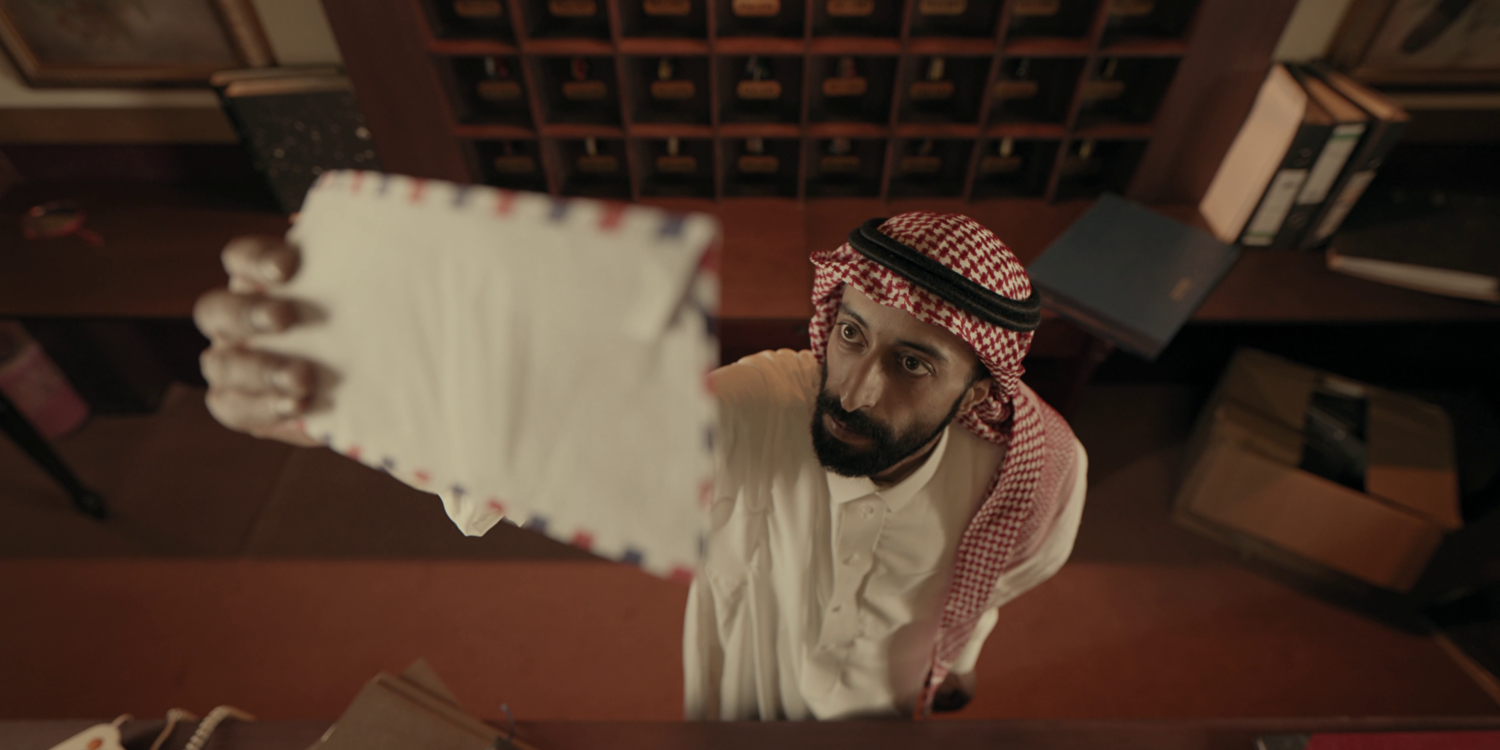Review by Alia Rageb.
Raven Song premieres in the UK at the ICA, London on 2 July as part of SAFAR Film Festival, click here for more information and to book.
Set in Riyadh in 2002, Director Mohamed Al Salman’s Raven Song is Saudi Arabia’s 2023 Oscar nomination, and Al Salman’s first feature length film. Drawing on themes from his previous shorts, Raven Song follows Nasser (Asem Alawad), nicknamed Ghorab (which translates to the Raven/Crow), as he navigates an obsessive journey of unrequited love.
The film opens with a dream-sequence: Nasser’s father is destroying music cassettes while his son and wife watch in horror. Distressed, Nasser leaves the house only to find that the sky is raining brains. We soon learn that Nasser has a rare brain tumour. His Egyptian neurologist is longing to perform an experimental, high-risk surgery to remove it and gain international acclaim. Nasser is completely opposed to the operation, growing to enjoy the hallucinations the tumour is said to cause.
Nasser has difficulties maintaining a job, but has finally found work at a mysterious, nearly deserted hotel, where he meets our antagonist (Kateryna Tkachenko). Dressed in a white ‘abaya, with a good amount of hair showing, she is decontextualized, loaded with mystique and allure – Nasser is immediately obsessed with her. She enters the hotel only to leave a mysterious envelope and a book of poetry in Room 227 (which Nasser cannot help but keep). The mystery continues when an elderly man with the air of a soothsayer requests to stay in the same room.
Though other characters encounter the woman, our unreliable narrator’s obsession with her blurs the line between reality and the surreal. It’s through his obsession that Nasser’s absurd adventures begin. The film here develops its poetic narrative: Nasser’s only friend and jack of all trades, Abu Saqr (“Father of the Falcon”, played by Ibrahim Khairallah) convinces him to write the femme fatale a poem. Abu Saqr would sing the poem, fulfilling a lifelong dream, and Nasser would win her heart. Abu Saqr’s catch-phase becomes emblematic of the film:
“I never listen to a poem without a melody”.
The film moves along in its surreal, poetic narrative without much of a melody for the audience to follow (at least until the end, where it crescendos into an unexpected resolution). The film maintains a certain meter through its many recurring visual metaphors, such as the brain-rain and goats that pop up everywhere. Nasser himself is often called the Saudi dialect word for goat, which means dumb. Another one is pigeons and doves – two birds that are gendered female in Arabic, as opposed to the crow and falcon, which are gendered masculine. This divide mimics the relationships between men and women within a conservativism where opposite sex relationships are limited to that of mothers and wives.
These metaphors are a point where translation can let foreign viewers down. The meanings of character nicknames are hidden, as falcons and crows are loaded metaphors for Saudis and Arabic-speakers, and their associated characters toy with their folkloric connotations. The subtitles are also sometimes inaccurate; for example, the hotel is called Pigeon Hotel in Arabic, but translated to Dove Hotel. The two birds feature prominently as separate metaphors in the film, yet but both are united in their gendering through confinement to a variety of spaces – in cages, a painting, the hotel, or within the femme fatale herself.
The density of metaphors is part of the film’s emphasis on the oral poetry tradition that has existed for centuries in Saudi. Poetry, both literarily and within the plot of the film itself, takes center-stage as a means to explore the conflicts inherent in building a contemporary Saudi identity, specifically in pre-2015 Riyadh. Al Salman directly references the poetry debates and competitions that took place between modernist poets and traditionalists at that time, evaluating the merits of free-form versus classical poetry. This intellectualism is humorously offset by the absurdity of Nasser’s naivety. Though unintentionally caught in the cultural battlefield, he is ensnared in the same themes discussed in this poetry of love. Nasser’s entanglement bridges the gap between the abstract negotiations and the lived experiences of a man lost with in their cultural realities.
Absurdly funny and loaded with visual metaphors, the film is part of an emerging Saudi national cinema arising from a place where film as a medium has long been neglected. For lovers of Saudi poetry and the oud, there are beautiful moments in the film’s soundtrack. It is most of all a film by and for Saudis, riddled with culturally specific jokes and references, unified by a satirical love story fit for any audience.

